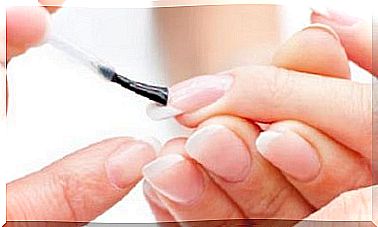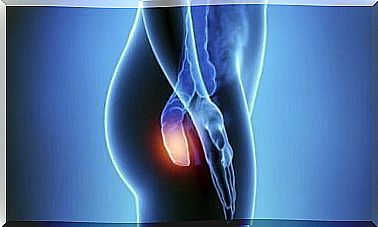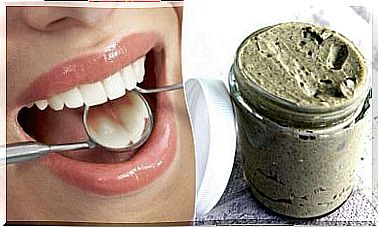4 Habits Influencing The Development Of The Brain In A Child
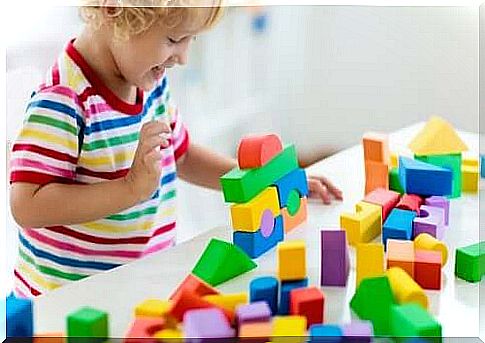
Until the age of three, the brain develops at an amazing pace. However , this brain development will continue for many years to come, until adolescence.
This organ begins to form in the early stages of pregnancy. Then, after birth, brain development continues, especially in early childhood. Can we stimulate this process in our children? Are there habits that can affect him and make him stronger? In this article, we’ll tell you a bit more about it.
Brain development in a child
The brain begins to form in the first two weeks of pregnancy. Later, at the end of pregnancy, the cerebral cortex is formed. However, it is not fully developed yet and will not develop before birth.
In fact, after birth, your baby’s brain is still forming and maturing. Only at the age of three does it reach almost 80% of the development of the adult brain. It is therefore the stage where the brain develops at an impressive speed.
Certainly this is the reason why we are unable to recall events from before that period. Therefore, the first years of life are essential to brain development. In fact, many of its basic structures develop then:
- The visual cortex. After six months, the child can see practically as an adult (depth, sharpness, etc.).
- The cerebellum multiplies its size, enabling the development of motor activities.
- Myelination becomes faster, so that messages reach the brain much faster.
- Neural growth. Many neuronal synapses are formed, even more than the brain has in adulthood. This explains why children can learn more and faster than adults.
However, development does not end at this age. On the contrary, it will develop at a dizzying pace, even into adolescence.
Brain development is also an active and interactive process that takes shape as a child grows up. Therefore, it is influenced not only by biological or physical factors, but also by others, such as the environment (parents, carers), lifestyle, etc.
Habits that affect the development of a child’s brain
1. Interaction
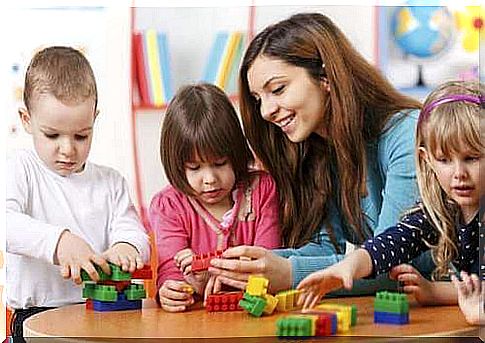
When a child is speaking, babbling or crying and encountering in response to eye contact, a hug, or a verbal response, neural connections are established or strengthened in their brain that later help them develop communication and social skills.
This is what the Harvard Children’s Development Center calls “serve and return.” In fact, researchers from this center indicate that a relationship without interaction, i.e. without a response, may even become a serious threat to the child’s development.
Indeed, in order to develop properly, the brain needs interaction in order to receive adequate stimulation. If there is no interaction, stress responses are activated, releasing hormones that can lead to impaired brain development.
2. Avoid toxic stress
According to the Children’s Development Center at Harvard University, it’s important to pay attention to how your child learns to cope with adversity as they grow up.
When we feel threatened, it is normal for our bodies to react with certain physical responses. These include the increase in heart rate and the release of hormones such as cortisol.
In this way, the child who finds a positive and supportive environment in such moments will learn to effectively regulate his stress, even at the physiological level.
On the other hand, children who feel threatened and do not find peace and support, and therefore their reaction is extreme or prolonged, may even suffer damage to their brain’s architecture, Center believes.
For this reason, we need to be supportive and help your little one control and relieve toxic stress responses. To do this, we need to support him so that he can learn to transform them into normal, positive stress responses. Therefore, it is imperative that the child has the stable support of his environment.
Physical exercise
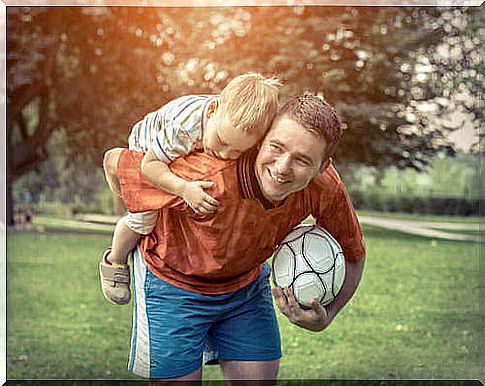
Exercise is also a decisive factor in brain development. No wonder the state of your brain is linked to your overall health. In this sense, some studies show that childhood exercise can improve children’s cognition.
Moreover, according to studies, exercise is also associated with a lower risk of childhood depression. Exercise is recommended for preventing mental illnesses that may come later.
We must also not forget that some aerobic exercise, such as cycling, has a really positive effect on hyperactive or attention deficit children.
Love
The relationship that develops between a child and the person caring for him is fundamental. It is of great importance for his physical, emotional and intellectual development.
The child needs to feel protected, safe and well cared for. It also needs constant support, dedication, responsibility and love. For this reason, those caring for children must always be open-minded and ready to react.
In fact, indifferent parents or guardians may be the reason behind mental health problems later on. For example, with learning, anxiety and behavior disorders.
As you can see, the brain is constantly developing in childhood. Therefore, for healthy development, it is imperative that the interactions with the environment and those caring for the child are stimulating and active.


